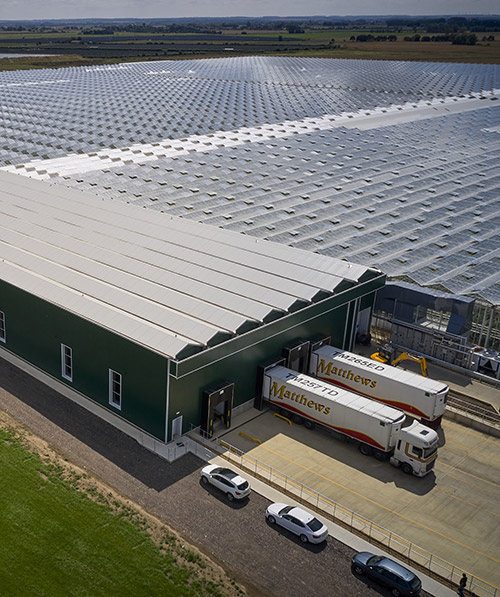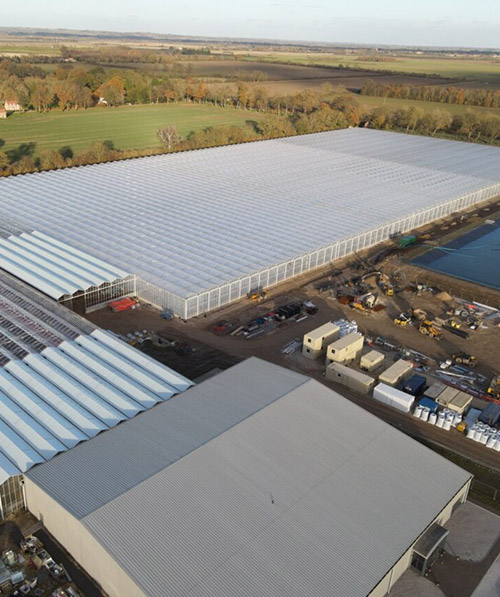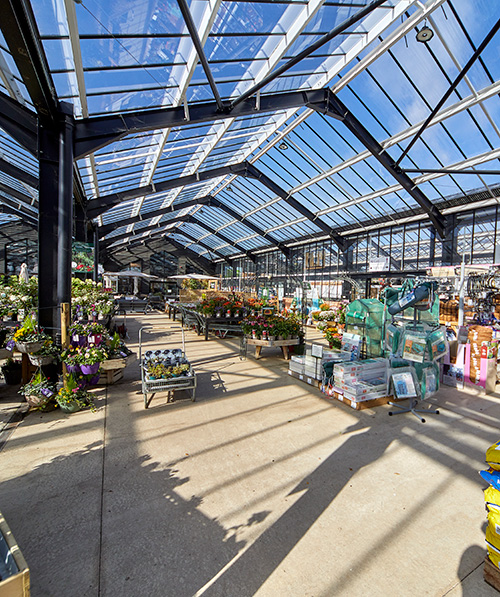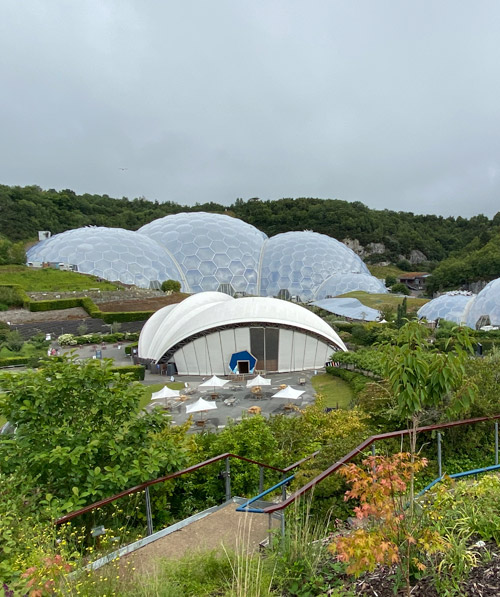Call Today 01430 449440
CambridgeHOK's 'best practice' in energy and vertical farming highlighted in Parliamentary Review
CambridgeHOK's increasing influence in changing the face of food production through the development of new 'vertical farms' has been hailed as a 'best practice' business example in a publication distributed to UK politicians and industry leaders.
Our work and expertise is featured in the 2019/20 Construction and Engineering 'Parliamentary Review'.
The publication highlights UK organisations which have become outstanding leaders in their field and is primarily aimed at company directors, chief executive officers and those in positions of leadership.
In total, the review is seen by around 500,000 people a year - including MPs and Peers at the House of Lords at Westminster.
Since its formation in 1956, CambridgeHOK has become a recognised industry leader in the production of commercial glasshouses.
Of late, however, our expertise in renewable energy solutions and combined heat and power (CHP), and the development of vertical farming facilities - which could see derelict buildings throughout the UK transformed into indoor crop growing centres - has been gathering momentum.
"It was an honour for CambridgeHOK to be featured in this Parliamentary Review looking at construction and engineering and in particular to be featured as the Best Practice Representative," said managing director John Holland.
"It is a reflection of how we as a business have been leading the way with regards to innovation and technology in very important areas for not just for businesses, but also the environment and the country as a whole.
"We've had particular success in renewable and sustainable energy solutions and horticulture, where we are passionate about leading significant future change."
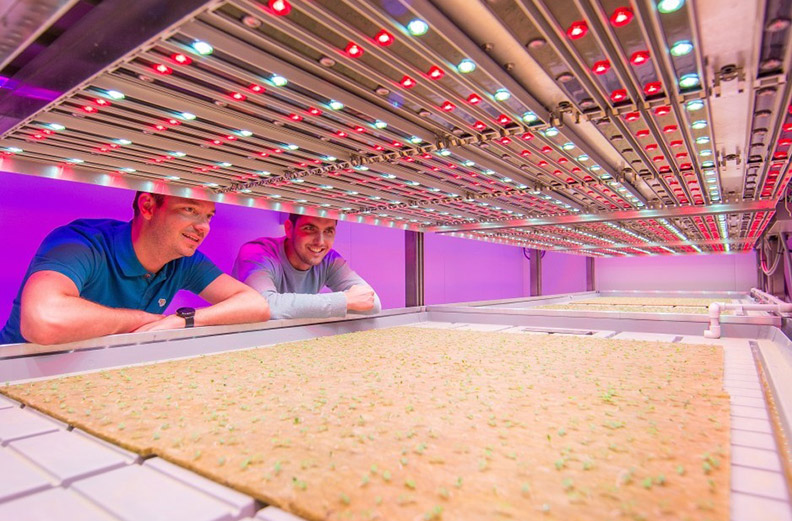
Developing 'indoor farming' centres with perfect growing environments
Vertical farming sees indoor spaces transformed into perfect environments for specific food-producing plants, using automated operations for vital elements from climate control and LED lighting to irrigation and fertilisation.
It is seen by many as the long-term solution given that by 2050, it is estimated that global food production will need to increase by around 70 per cent in developed countries to keep up with current consumption trends.
The aim is to produce the ideal growing climate and perfect crops time and again, and over the past three years expert teams CambridgeHOK have been increasingly assisting businesses and investors to research, design, plan and build facilities which make concerns over soil quality, light and weather a thing of the past.
"Almost half of the food consumed in the UK is currently imported, and almost 75 per cent of our available agricultural land is already utilised. A new way forward is needed," added Mr Holland.
"We build revolutionary facilities which enable crop growing with a high degree of control in limited areas of space, bringing reliability and peace of mind to the supply chain and increased annual cropping cycles.
"As we move forward, we want to continue to lead the charge towards vertical farming as through controlled and specific automation, we are able to input a seed at one end and bring a controlled crop out at the other, without the need for crops to be sprayed with pesticides.
"It is sustainable and water efficient. Crops can be produced from a smaller land footprint and on a vertical plane in almost any available space. That means they can be in busy towns or cities close to customers and increasing populations."
Firm is helping businesses reduce energy costs with own on-site generation
Also featured in the Parliamentary Review were details of CambridgeHOK's success in helping businesses reduce their energy costs and carbon footprint by designing and building on-site energy generation centres, delivering tailored technology specifically to suits the client's requirements.
It's an area which has also found a natural synergy with the firm's work in producing commercial glasshouses for growing companies across the UK.
Mr Holland added: "We have found combined heat and power energy centres to be particularly effective. We use them to generate electricity that is exported to the grid to power local communities and industry while also capturing all the heat from the engines.
"This can then either be stored in large insulated tanks to be used at night to heat the greenhouses when the engines aren't running or can be distributed throughout the glasshouse during low temperatures during the day or to control humidity.
"The carbon dioxide produced as a bi-product of the CHP process is cleaned of NOX, SOX and Carbon Monoxide using large catalytic converters before being piped into the glasshouse in order to help the yield and crop growth. This is both more efficient and environmentally friendly.
"Sustainability is paramount for the future of all businesses both in the UK and globally, and it is likely we will see further government intervention.
"As a result, we are confident that the market for these solutions will continue to grow."
To read the Parliamentary Review article click here
To find out more about our Vertical Farming consultancy services click here
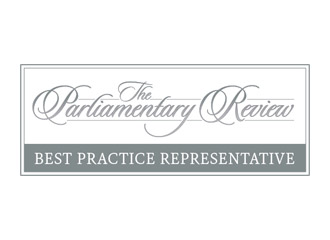
Call us to speak to a member of our team or complete the enquiry form and we will get back to you
- 01430 449440
- [email protected]
- Wallingfen Park
236 Main Road
Newport, Brough
East Yorkshire
HU15 2RH

